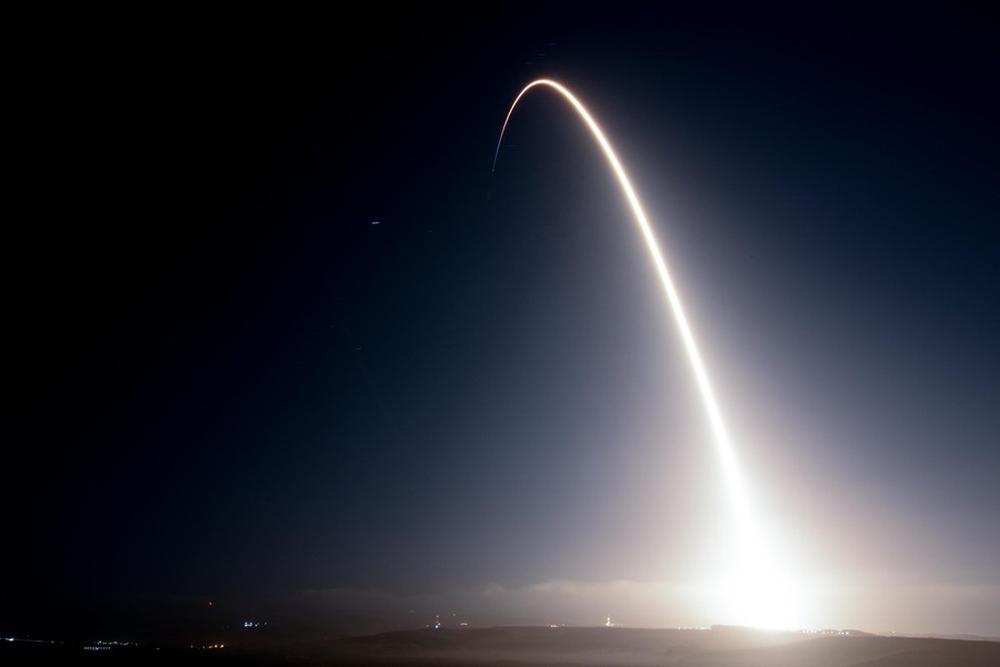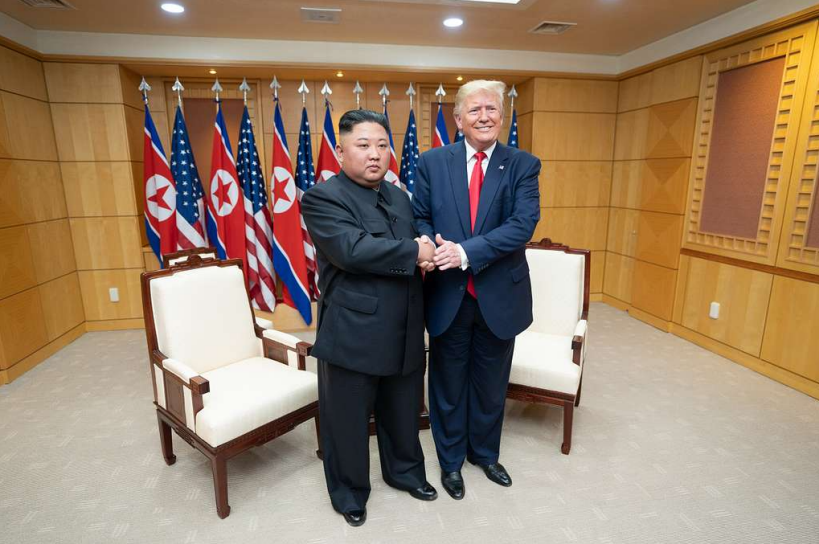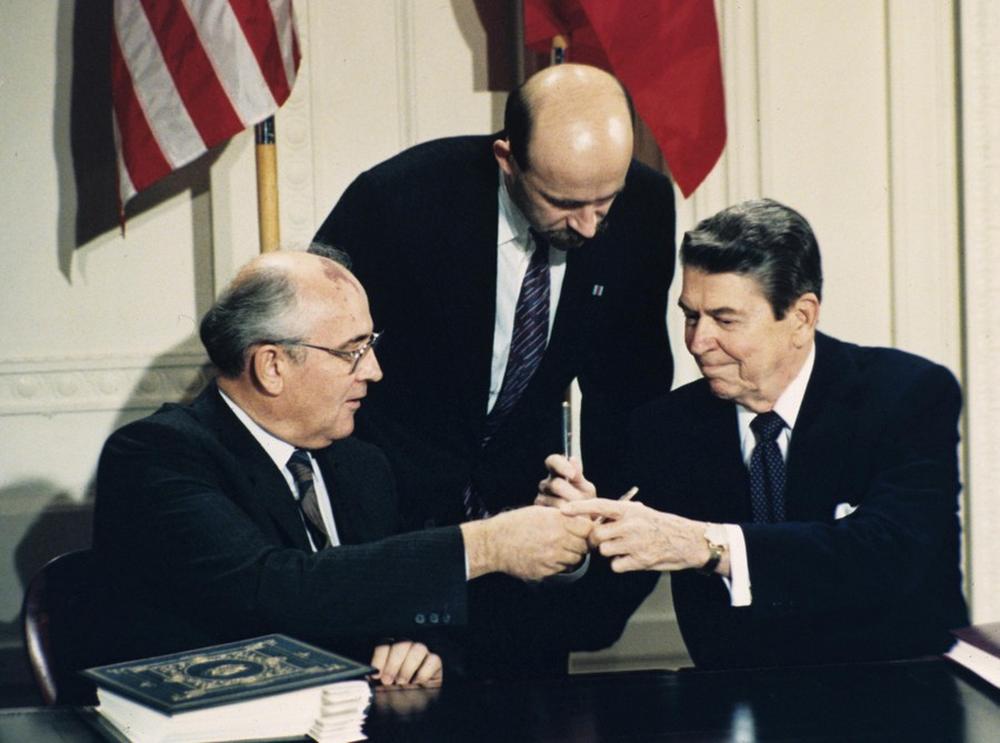
- #Global Issues
- #Nuclear & Missile Issues
- #US Foreign Policy

▶ Shift in U.S. Nuclear Policy: Trump’s second term is expected to prioritize bilateral negotiations over multilateral agreements, with a focus on symbolic deals and direct engagement in the Middle East and Northeast Asia.
▶ Middle East Challenges: Reviving the Iran nuclear deal remains unlikely due to conflicting goals, while Trump’s focus on Israel’s security complicates broader regional nuclear diplomacy.
▶ North Korea and Arms Control: Trump’s personal diplomacy with Pyongyang may shift toward arms control talks, potentially undermining long-term denuclearization and posing challenges for South Korea’s security.
Donald Trump’s re-election in the 2024 U.S. presidential election signals a significant shift, marking a return to the “America First” policy. This time, the intensity of the America First agenda is expected to be even greater than during his previous term. Trump’s foreign policy approach has always emphasized U.S. interests over multilateral cooperation, and his re-election brings renewed focus on how this approach will shape the global denuclearization agenda.
This article examines the impact of Trump’s America First agenda on the U.S. global denuclearization policy, with a particular focus on the Middle East and Northeast Asia. These two regions are pivotal not only because they are central to U.S. global strategy, but also because they present the most complex challenges for the U.S. in denuclearization efforts.
Trump’s Second-Term Global Denuclearization Policy: Weakening Multilateralism
A defining feature of Trump’s global denuclearization policy has been the weakening of multilateralism. This trend was evident throughout his first term. Trump’s approach prioritizes direct negotiations with individual nations over multilateral frameworks such as the Nuclear Non-Proliferation Treaty (NPT). By sidelining multilateral agreements, Trump aims to maximize U.S. interests in every negotiation, focusing on outcomes that can be directly measured in terms of benefits to the U.S.
This approach has also manifested in a willingness to withdraw from or invalidate agreements that are perceived as unfavorable to U.S. interests. A prime example of this was Trump’s decision to withdraw from the Joint Comprehensive Plan of Action (JCPOA), commonly known as the Iran nuclear deal. The JCPOA was a multilateral agreement designed to limit Iran’s nuclear program, but Trump criticized it for being too lenient and failing to address Iran’s regional military activities.
In Trump’s second term, this trend of weakening multilateralism is likely to continue. The difference between Trump’s first and second term is the increased likelihood of reaching a “symbolic” deal. It reflects Trump’s desire to underscore his accomplishments during his presidency, even if the agreements fall short of substantive denuclearization goals. By focusing on high-profile diplomatic events, Trump may prioritize political messaging over long-term security outcomes. His “outsider” political style, characterized by his willingness to challenge international norms and adopt unconventional approaches, is likely to shape his strategy, even if it provokes opposition from the global community.
The Middle East: Post-JCPOA Possible?
In the Middle East, the most pressing denuclearization issue is whether the JCPOA can be revived. While some observers speculate that Trump might attempt to replace the JCPOA with a bilateral agreement, the likelihood of success is low. Trump’s opposition to the JCPOA was rooted not only in concerns about Iran’s nuclear ambitions but also in his desire to limit Iran’s military activities in the region. These broader goals complicate any attempt to negotiate a new deal.
Iran has consistently resisted unilateral U.S. demands and considers its nuclear program and military actions to be separate issues. As a result, any attempt to include restrictions on Iran’s regional military activities in a bilateral agreement is unlikely to succeed. Tehran’s position reflects a broader distrust of U.S. intentions and a commitment to maintaining its strategic autonomy.
Trump’s desire to limit Iran’s military activities is closely tied to his commitment to Israel’s security. Reducing Iran’s military threat to Israel has been a cornerstone of Trump’s Middle East policy; thus, any future negotiations with Iran would likely include provisions aimed at de-escalating tensions between the two states. This adds another layer of complexity to the already challenging task of negotiating a nuclear agreement.
The interplay between regional military dynamics and nuclear diplomacy underscores the difficulties of achieving meaningful progress in the Middle East. These challenges make it unlikely that he will prioritize substantive negotiations with Iran during his second term.
Northeast Asia: Growing Prospects for Arms Control Talks with North Korea
In Northeast Asia, the focus of U.S. denuclearization efforts will remain primarily on North Korea. Trump is likely to push for another summit with North Korean leader Kim Jong-un, building on his willingness to engage directly with Pyongyang during his first term. Trump’s approach to North Korea has been marked by a preference for personal diplomacy, and he is expected to continue leveraging this strategy in his second term.
North Korea’s participation in such talks will likely depend on whether denuclearization is a precondition. If denuclearization is not required, North Korea may agree to engage, as it seeks de facto recognition as a nuclear-armed state by the U.S. Pyongyang views Trump as a unique negotiator who might entertain such an outcome, particularly given his unorthodox approach to diplomacy.
Given North Korea’s refusal to negotiate under denuclearization preconditions, Trump’s second term may see a shift toward arms control talks rather than denuclearization based on “complete, verifiable, and irreversible dismantlement (CVID).” Such negotiations would aim to limit the scope of North Korea’s nuclear program while securing commitments to prevent attacks on the U.S. mainland. For Trump, this approach aligns with his America First agenda, as it allows him to claim a diplomatic victory while addressing immediate security concerns.
This strategy, however, risks undermining long-term denuclearization efforts by effectively accepting North Korea’s nuclear capabilities. For South Korea, this scenario poses significant challenges, as it could lead to a realignment of U.S. priorities in the region at the expense of South Korea’s security.
Policy Implications for South Korea
Trump’s second-term denuclearization policy poses significant challenges for South Korea, particularly as the weakening of multilateralism could destabilize regional security. Proactive strategies are necessary to address risks to South Korea’s energy security and the evolving dynamics of North Korean denuclearization.
The Middle East is critical for South Korea’s energy security, supplying a large portion of its crude oil. If nuclear negotiations with Iran fail or U.S. sanctions on Iran intensify, regional instability could disrupt energy supply chains, leading to higher prices and negative economic impacts. To mitigate these risks, South Korea must diversify import sources by enhancing energy partnerships with countries like the U.S., Canada, and Australia, reducing reliance on the Middle East. According to the Korea National Oil Corporation, South Korea’s reliance on the Middle East for crude oil increased to 71.9% in 2023, driven by the replacement of Russian crude oil with Middle Eastern supplies. As South Korea’s reliance on crude oil imports from the Middle East has grown, greater emphasis should be placed on diversifying import sources to enhance energy security. Strengthening multilateral energy cooperation with Middle Eastern countries is also vital for improving supply chain stability and fostering long-term collaboration.
When addressing North Korea, South Korea must prepare for the possibility that the U.S. might recognize Pyongyang’s nuclear capabilities through arms control agreements. First, South Korea should emphasize the importance of robust verification mechanisms in disarmament talks, working closely with the U.S. Congress to ensure accountability and transparency. Second, asserting South Korea’s role in U.S.-North Korea negotiations is critical. This can be achieved by highlighting Seoul’s strategic and economic contributions. Strengthening cooperation in the shipbuilding sector, as suggested by Trump, offers a promising avenue for collaboration. Military preparedness remains essential to counter evolving threats. South Korea should prioritize completing the Korean Three-Axis System (Kill Chain, Korean Air and Missile Defense, and Korea Massive Punishment and Retaliation), while also advancing cyber defense capabilities and developing next-generation weapons systems. Finally, advocating for multilateral frameworks such as the NPT and promoting regional dialogues are crucial to upholding a rules-based international order and ensuring long-term stability.

Sunwoo Paek is a Research Fellow at Institute for National Security Strategy. Dr. Paek holds her B.A., M.A., and Ph.D. in Political Science from Korea University. Her research interests include nuclear proliferation and alliance politics. Her work is published in scholarly journals, including The British Journal of Politics and International Relations, Diplomacy and Statecraft, Korean Journal of International Studies, Journal of International and Area Studies, The Journal of Asiatic Studies, and Korean Journal of International Relations.

